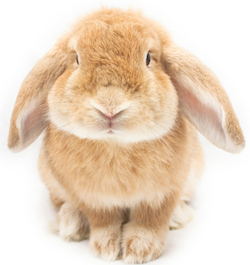Vaccination of the rabbit
 Just as the dog or cat, the rabbit must be vaccinated preventively against certain types of diseases. Contrary to what one might think, farmed rabbits are not the only ones to be affected by the vaccination, especially when it comes to diseases transmitted through biting insects.
Just as the dog or cat, the rabbit must be vaccinated preventively against certain types of diseases. Contrary to what one might think, farmed rabbits are not the only ones to be affected by the vaccination, especially when it comes to diseases transmitted through biting insects.
What diseases vaccinatin the rabbit she warns?
La Myxomatose
Myxomatosis is a viral disease that can take two forms:
– respiratory form
– a nodular form
A pet rabbit, even if he lives only within, may be affected by the nodular myxomatosis since it transmits through biting insects (mosquitoes, chips…)
Contaminated rabbit skin nodules present on the face and anogenital region. This is a difficult disease to treat and involving life-threatening animal.
The primary vaccination against myxomatosis is performed from the age of 28 days. It may be renewed 6 to 8 weeks after the first injection and the following vaccines are made every 4 to 6 month depending on the vaccine used and the risk of contamination of the animal.
As with any type of vaccination, intolerance vaccine may appear:
she goes to a simple local reaction at the injection point to a more general impairment with decreased appetite, fatigue and fever…
Do not hesitate to contact your vet if you notice this type of reaction in your rabbit.
Viral Hemorrhagic Disease
Hemorrhagic disease is a condition caused by a virus that is transmitted:
– either by direct contact of the animal with an infected rabbit or body,
– either indirectly by contaminated water, the material used or by foods (garden vegetables, straw or hay) brought in from outside ...
It is not excluded that insects can act as a vector.
The symptoms associated with this disease are uncharacteristic:
it may be from a simple fever, associated with general fatigue and lack of appetite, but the appearance of respiratory disorders, digestive or bleeding may also occur. Sometimes, the rabbit dies suddenly, without any symptoms.
Unfortunately, there is no treatment against viral hemorrhagic disease and it is inevitably accompanied by the rapid death of the infected rabbit.
Wherein the vaccine is very well tolerated, it is advisable to vaccinate all the animals, including rabbits low risk of contamination.
Depending on the vaccine used by your vet, injecting primary vaccination may be carried out from the age of 4 weeks and will be followed by annual boosters or biennial.
In addition to vaccination, it is advisable to administer to your pet antiparasitic treatment for his action against biting insects. Your veterinarian conseilllera you a pesticide effective and with no risk for the rabbit.
© Copyright Vetup 2011
